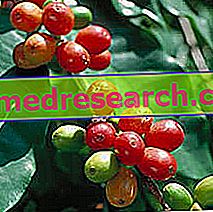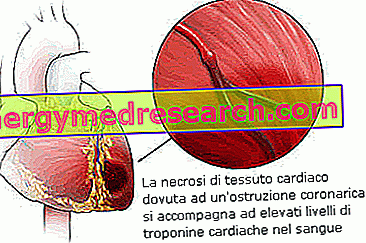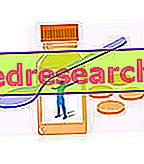
Scientific name
Coffea arabica L.Family
SterculiaceaeOrigin
Africa.Used Parts
Roasted seeds are used in the plant.Chemical constituents
- Polyphenols;
- Nitrogen and sugar substances;
- Caffeine;
- Theobromine;
- Caffetannic acids.
Coffee in Herbal Medicine: Coffee Properties
Coffee is considered a slightly psycho-neurostimulant drink, which also stimulates the activation of the sympathetic nervous system, with particular emphasis on the cardiovascular system. The effects of coffee include a slight excitement of the brain, a more rapid conception, a greater capacity for concentration and attention, a lower sense of tiredness, an increase in the number of pulsations and an increase in gastric secretion. Coffee, or rather caffeine, is an important ingredient in anti-cellulite products.
Biological activity
The psychostimulant activity of coffee is due to the caffeine it contains. In fact, caffeine is a methylxanthine able to stimulate the central nervous system and the cardiovascular system, and exerts its exciting action through the antagonization of adenosine receptors.
In addition to the caffeine contained in the raw green coffee, slimming properties are attributed. More precisely, caffeine - promoting the secretion of adrenaline and noradrenaline - is able to favor lipolysis indirectly and - at the same time - to directly favor the release of fatty acids from their deposits towards the bloodstream.
However, it should be pointed out that caffeine does not in itself have a slimming effect, but is able to assist the slimming process only and exclusively if it is taken as part of a lifestyle that involves regular physical activity and a moderate calorie diet (for more information about the alleged slimming properties of raw green coffee, see the dedicated article "Raw green coffee: does it make you lose weight?").
Coffee in folk medicine and homeopathy
In folk medicine, coffee is used to increase psycho-physical performance and to combat edema. It is also used in the treatment of serious diseases, such as anemia and hepatitis.
In the homeopathic field, on the other hand, coffee is used as a remedy for insomnia, neuralgia, headaches and even against anxiety, hyperactivity and restlessness.
The mother tincture - from which the different homeopathic dilutions will then be obtained - is prepared starting from the ripe and unroasted coffee beans.
Homeopathic coffee-based preparations can be found in the form of diluted solutions or globules. The dosage of product to be used may depend on the homeopathic dilution that is intended to be used.
Curiosity: coffee charcoal
From coffee and, especially from its beans, you can get the so-called coffee charcoal. This particular charcoal is produced by roasting the outer portion of the dried green coffee seeds. The roasting process is continued until the beans carbonize externally. Subsequently, the charred part is recovered and ground, thus obtaining the coffee charcoal, whose main components are caffeine, trigonelline and products that derive from the combustion of the hemicellulose of the grains themselves.
The charcoal has astringent and adsorbent properties, for this reason its use has been officially approved for the treatment of diarrhea.
However, it is good to remember that - due to its adsorbent properties - the consumption of coffee charcoal could interfere with the absorption of certain drugs.
Side effects
Excessive consumption of coffee, therefore the ingestion of large amounts of caffeine (doses higher than 1.5 grams per day), can lead to the onset of side effects such as diarrhea, vomiting, abdominal spasms and other gastrointestinal disorders, sore head, tachycardia, restlessness, irritability and insomnia.
Contraindications
Because of its properties, coffee is contraindicated in heart patients, hypertensives and subjects with peptic ulcer, hiatal and hyperthyroid hernia.
Furthermore, coffee intake is not recommended even in pregnant women and breastfeeding mothers. In fact, infants whose mothers take coffee-based drinks can develop sleep disorders.
Pharmacological Interactions
- I-MAO: hypertensive crisis;
- oral contraceptives, cimetidine, verapamil, disulfiram, fluconazole and quinolonics inhibit the metabolism of caffeine, with possible increase of its stimulating effects;
- thyroid hormones, adrenaline, ergot alkaloids, ephedra, synephrine: it enhances its effects;
- oral anticoagulants: reduces their activity;
- phenylpropanolamine: increased blood pressure;
- lithium: reduction of lithium levels in the blood;
- benzodiazepines: reduction of sedative effects;
- antiarrhythmics: increased caffeine plasma concentration;
- iron: it reduces its absorption;
- Aspirin: caffeine increases its bioavailability;
- phenytoin: increases the metabolism of caffeine;
- fluoroquinolones: increase the concentration of caffeine in the blood;
- ipriflavone: possible increase in the concentration of caffeine in the blood;
- enzyme inducers: reduction of caffeine in the blood;
- macrolides: increased caffeine in the blood;
- ticlopidine: increased caffeine in the blood.



